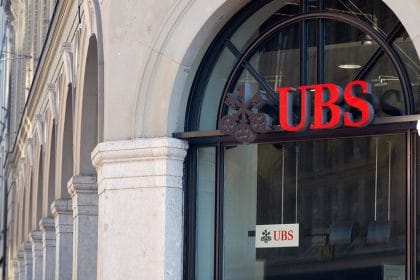Several major banks are part of the Fnality International project. Fnality is working to create digital versions of five major fiat currencies, including the dollar and yen. The project has been delayed until at least 2021 as it seeks regulatory approvals.
Last summer some of the biggest lenders in the world including Barclays Plc (LON: BARC), Banco Santander SA (BME: SAN), Credit Suisse Group AG (SWX: CSGN) and another 10 banks confirmed they had flooded this banking sector with over 50 million pounds. The money was invested into a project that is said to make digital versions of the U.S. dollar, Canadian dollar, British pound, Japanese yen, and the euro. The project, dubbed Fnality, was imagined as the combined product of the Switzerland-based investment bank UBS Group AG (SWX: UBSG), Barclays and others.
The basic plan was that those digital assets would be already created and pretty much ready to use in real-life by the end of this year. However, it seems that the project won’t be seeing the light of the day until at least 2021. Barclays, UBS and other participants have to put their plan on pause.
This Project of UBS and Barclays to Revolutionize Settlements
A settlement bank refers to a customer’s bank where payments or transactions finally settle and clear for customer use.
Often times, the payer of a transaction will be a customer of a different bank from the receiver, and so an interbank settlement process must occur. Basically, it involves the actual exchange of money, or some other value, for the securities. Clearing is the process of updating the accounts of the trading parties and arranging for the transfer of money and securities. The member firms have financial responsibility to the clearinghouse for the transactions that are cleared. Originally known as Utility Settlement Coin, Fnality was to make that whole process simpler and faster.
It also had a role to play in the digital assets world, as people trade cryptocurrencies for fiat money. Bitcoin may settle quickly, but cash still probably won’t. That’s where the tokenized global currencies came in, catching up in the world of enterprise blockchains and similar legacy systems.
CBDCs Different from Privately Created Digital Currencies
The more thorough details were still being to be announced, as were the regulatory approvals. As per some media reports, Fnality International head Rhomaios Ram is looking toward approval at some point at the beginning of 2021.
That means waiting for the start-up gun from a central bank, which may be interested in seeing what a bank-run digital currency acts like before coming out as a state-run product.
The U.S., Canada, Japan, UK, and Europe have all contemplated or are studying central bank digital currencies (CBDCs), which would be completely unlike from these privately created ones. In July, for example, the Bank of Japan’s department director-general confirmed to the Japanese media that the central bank was processing forward with a CBDC, even though he didn’t precise when it might be ready.
Be it as it may, this may not be the first such of product for banks. In February this year, Mark Hipperson, who was head of technology for the Barclays group for over a decade as well as co-founder and former CTO at UK challenger bank, Starling, announced he is planning a Q1 2020 launch for his latest digital banking venture Ziglu. And now a couple of days ago it became known that Ziglu had secured the Electronic Money Institution (EMI) license from the Financial Conduct Authority (FCA).
Billing itself as the next step in the challenger bank concept, the all-digital account will allow multiple currencies, both fiat and digital, to be held in the same account.
next